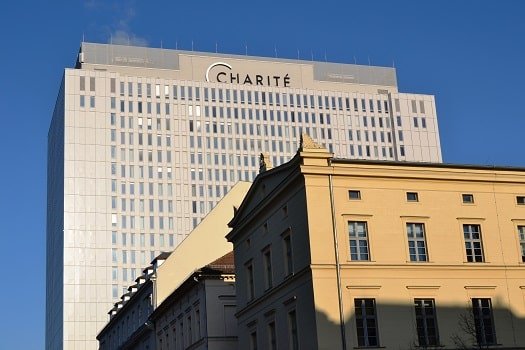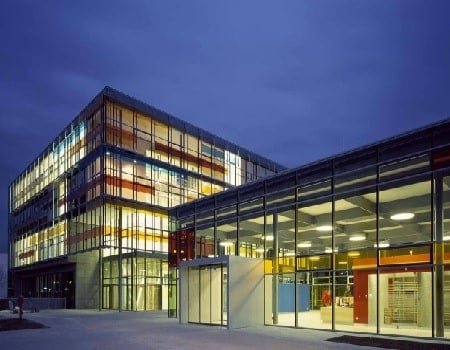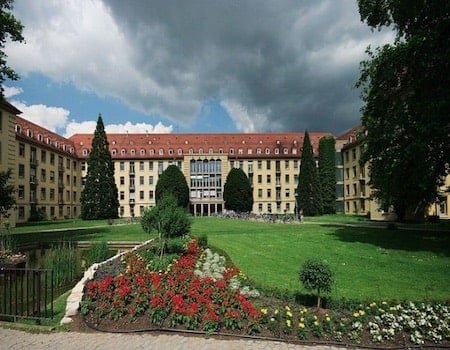Best Stomach Cancer Hospitals in Germany
You May Be Also Interested In
Additional Resources
Choosing the best hospital for stomach cancer treatment in Germany can significantly impact outcomes through early diagnosis, cutting-edge therapies, and personalized care. Germany is renowned for its world-class oncology centers, offering some of the most advanced technologies available globally. These include robotic-assisted surgical systems for minimally invasive procedures, state-of-the-art radiotherapy methods such as intensity-modulated radiation therapy (IMRT) and proton beam therapy, and sophisticated genomic profiling using next-generation sequencing (NGS).
Patients in Germany benefit from access to internationally approved treatments, including FDA and EMA-authorized drugs like pembrolizumab for tumors with MSI-high or dMMR characteristics, and trastuzumab for HER2-positive gastric cancers. These targeted therapies have revolutionized the management of stomach cancer, offering new treatment avenues even for advanced or metastatic stages.
Top hospitals in Germany emphasize a multidisciplinary approach, where oncologists, surgeons, radiologists, and genetic specialists work collaboratively to create individualized treatment plans. This patient-centered model ensures comprehensive support throughout diagnosis, treatment, and recovery. Additionally, treatment costs remain competitive when compared with other leading healthcare systems worldwide, making Germany a preferred destination for international patients seeking high-quality stomach cancer care.
Innovations and Treatment Options in Germany’s Cancer Hospitals
FDA & EMA-Approved Targeted and Immunotherapies
- Trastuzumab (Herceptin): For HER2-positive gastric cancer
- Pembrolizumab (Keytruda): For MSI-high/dMMR tumors
- Nivolumab (Opdivo): Approved for advanced gastroesophageal cancers
Mutation Types and Corresponding Treatments
| Mutation Type | Targeted Therapy |
| HER2-positive | Trastuzumab + chemotherapy |
| MSI-high/dMMR | Pembrolizumab or Nivolumab |
| PD-L1 expression | Immune checkpoint inhibitors |
Advanced Diagnostics
- Next-Generation Sequencing (NGS): For detecting actionable mutations
- Liquid Biopsies: Non-invasive tumor monitoring
- AI-Powered Pathology: For accurate staging and treatment planning
Cutting-Edge Surgery and Radiation Options for Stomach Cancer Treatment in Germany
Germany offers some of the most advanced surgical and radiotherapy techniques available today for the treatment of stomach cancer. These state-of-the-art interventions aim to improve precision, reduce side effects, and enhance patient recovery, particularly in both early and advanced stages of the disease.
Robotic-Assisted Gastrectomy
German cancer centers are equipped with sophisticated robotic surgical systems—such as the Da Vinci platform—that allow surgeons to perform gastrectomies (partial or total removal of the stomach) with exceptional precision. These minimally invasive procedures result in smaller incisions, reduced blood loss, faster recovery times, and lower risk of complications compared to traditional open surgeries. Robotic-assisted gastrectomy is especially beneficial for preserving nearby organs and critical structures, making it a preferred option for complex cases.
Stereotactic Body Radiotherapy (SBRT)
SBRT is a highly focused form of radiation therapy used in Germany to treat localized gastric tumors or metastases with extreme accuracy. This technique delivers high-dose radiation beams to the tumor while minimizing damage to surrounding healthy tissue. It is particularly useful for patients who are not surgical candidates or who require targeted treatment for residual or recurrent disease. SBRT’s precision allows for shorter treatment durations and fewer sessions compared to conventional radiotherapy.
Proton Beam Therapy
Germany is among the few countries in Europe offering proton therapy, a cutting-edge form of radiation that uses positively charged particles to destroy cancer cells. Unlike traditional X-ray radiation, proton beams can be controlled to stop at the tumor site, significantly reducing radiation exposure to nearby organs like the liver, pancreas, and heart. This makes it an ideal option for treating stomach cancers located near sensitive structures, especially in younger patients or those requiring re-irradiation.
Together, these advanced technologies reflect Germany’s commitment to delivering world-class, personalized treatment for stomach cancer with a strong focus on patient safety, comfort, and outcomes.
FAQs About Stomach Cancer Treatment in Germany
Q.1 Which hospital in Germany offers the best treatment for stomach cancer?
Germany is home to several leading cancer centers, but hospitals like Charité – Universitätsmedizin Berlin and Heidelberg University Hospital consistently rank at the top. They are widely respected for their highly skilled medical teams, use of the latest technologies, and access to innovative treatments approved by both the FDA and EMA.
Q.2 Are FDA-approved drugs for stomach cancer available in Germany?
Yes, absolutely. Top German hospitals routinely use globally approved therapies, including:
- Trastuzumab for HER2-positive gastric cancer
- Pembrolizumab for MSI-high or mismatch repair-deficient (dMMR) tumors
- Nivolumab for tumors with high PD-L1 expression
These drugs are part of the standard care protocols in many university hospitals.
Q.3 How is advanced stomach cancer treated in Germany?
Advanced or metastatic stomach cancer is handled through a multidisciplinary approach, where a team of oncologists, surgeons, radiologists, and specialists work together. Treatment plans often include:
- Targeted therapies based on tumor genetics
- Immunotherapy to boost the body’s immune response
- HIPEC (heated chemotherapy during surgery) for peritoneal spread
- Precision radiation techniques such as VMAT or proton therapy
Q.4 What is NGS testing, and is it available in Germany?
Next-Generation Sequencing (NGS) is a modern genetic testing method that helps identify specific mutations in a tumor. This information is critical for selecting the most effective targeted therapies. German cancer centers—especially university hospitals—offer NGS and sometimes liquid biopsies to tailor treatment to each patient’s cancer profile.
Q.5 Can international patients access these treatments in Germany?
Yes, international patients are warmly welcomed. Major hospitals in Germany have dedicated international departments that help with:
- Medical visa support
- Translation and interpretation services
- Travel and accommodation planning
- Coordination of medical records and care across departments
The goal is to ensure smooth, stress-free care from arrival to recovery.
Q.6 What is the cost of stomach cancer treatment in Germany?
Treatment costs vary based on the stage of cancer and the therapies required. As a general estimate:
- Surgery: €20,000–€40,000
- Chemotherapy (per cycle): €2,000–€5,000
- Targeted therapy (e.g., Trastuzumab): €5,000–€8,000 per month
- Immunotherapy (e.g., Nivolumab or Pembrolizumab): €7,000–€10,000 per cycle
Despite the high quality of care, these costs are often competitive compared to those in the U.S. or the U.K., making Germany a sought-after destination for advanced cancer treatment.
Q.7 Do German hospitals offer robotic or minimally invasive surgery for stomach cancer?
Yes, leading hospitals such as Charité Berlin, LMU Munich, and University Hospital Dresden offer minimally invasive and robotic-assisted gastrectomies. These approaches reduce recovery time, pain, and complications, especially for early-stage tumors.
Q.8 Which cities in Germany are known for excellent stomach cancer care?
Cities like Berlin, Heidelberg, Munich, Hamburg, and Dresden are home to university hospitals with international reputations for excellence in oncology, surgery, and personalized cancer care.
Still unsure which hospital is right for your stomach cancer treatment? Contact Cancer Rounds for a personalized consultation and hospital recommendation.
Our Impact
CancerRounds is making quality cancer care accessible to more people every day.




Why Choose India for Cancer Treatment?

World-Class Care
Skilled oncologists provide top-tier medical services

Affordable Treatment
Costs are significantly lower than in Western countries.

Comprehensive Packages
Hospitals offer all-inclusive plans covering surgery, stay, and aftercare.

Easy Accessibility
Well-connected airports and international flight routes.

Proven Success
High patient satisfaction and positive treatment outcomes


